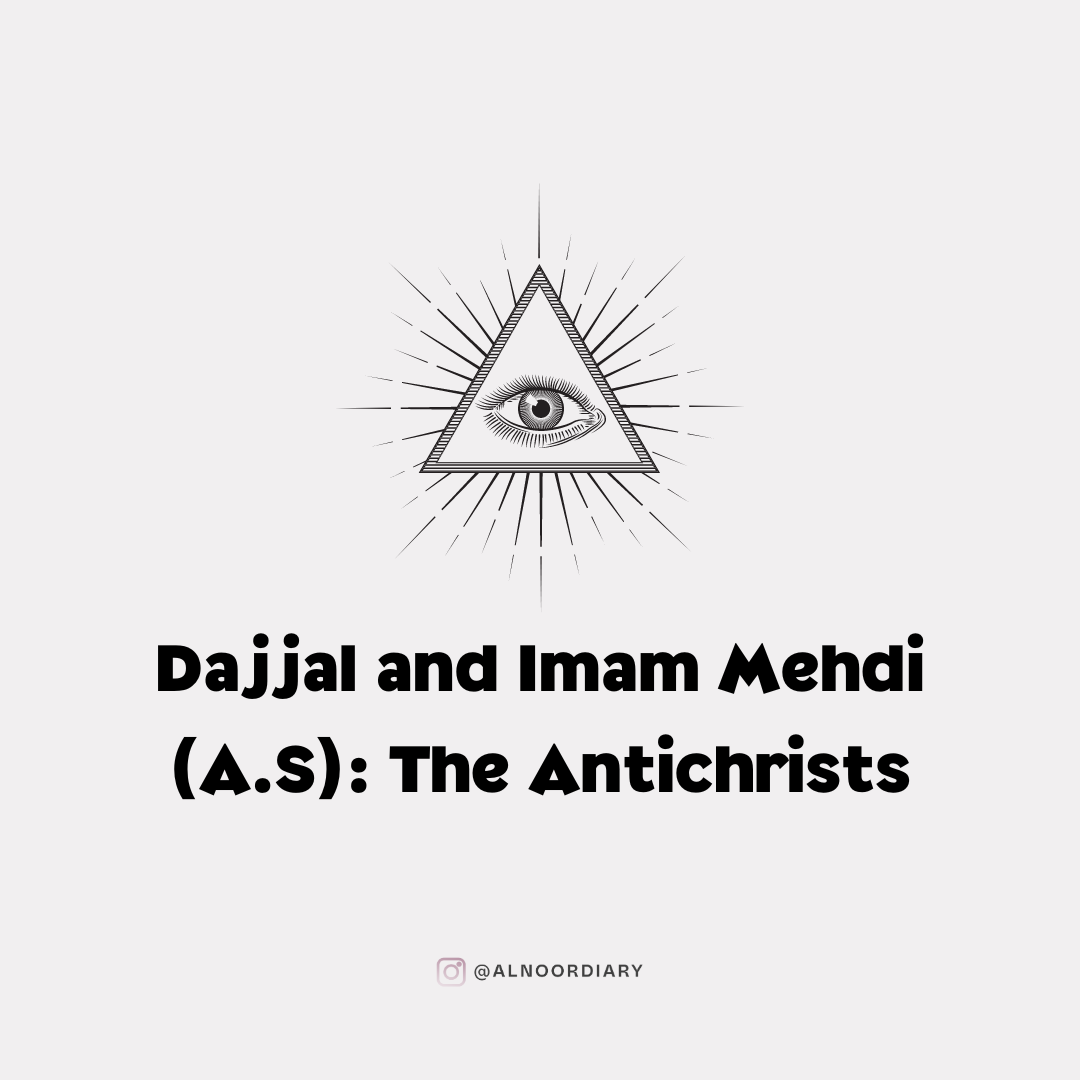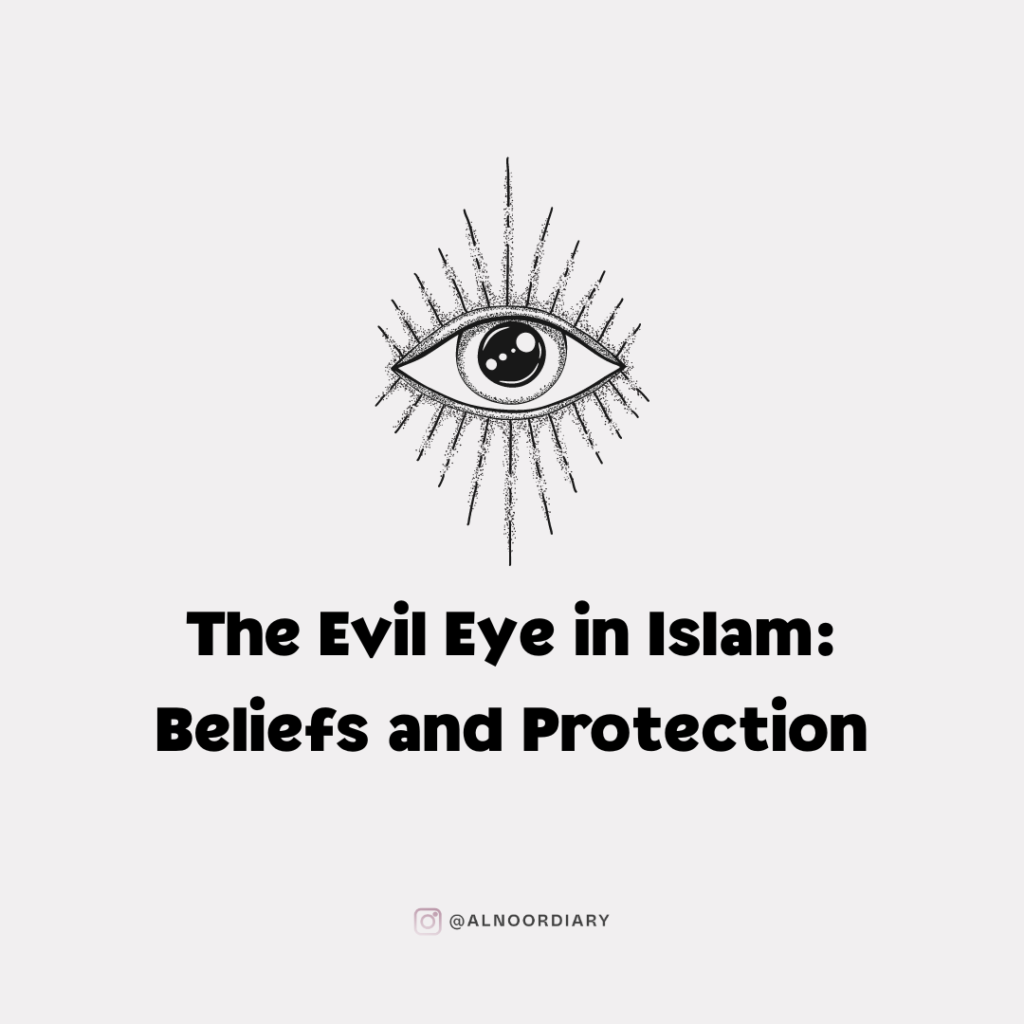Do you know that the Dajjal or “Antichrist,” and Imam Mehdi (A.S), the Saviour who is awaited, are the very significant elements of Islamic eschatology? They form an integral part of belief in Islam and have been depicted in many prophetic stories. We will go into their roles, characteristics, and what they mean for Islamic theology and apocalyptic traditions.
Key Takeaways
- The Dajjal and Imam Mehdi (A.S) are two of the most important personalities associated with the Islamic eschatology.
- These end times figures have been elaborated in prophetic narratives regarding their nature and function.
- The significance of Dajjal and Imam Mehdi can be grasped well in order to understand the Muslim worldview about the apocalypse.
- The fight of Dajjal and Imam Mehdi (A.S) is the central theme of the cosmic battle as contained in the Islamic apocalyptic traditions.
- Belief in Dajjal and Imam Mehdi (A.S) forms a part of a broader Saudi tradition of Islamic eschatology.
Introduction to Islamic Eschatology
Islamic eschatology speaks to the end times and humanity’s end. It is very deeply rooted in the Quran and hadith. These stories make up the Islamic perspective of the world.
Importance of Prophetic Narratives
The end times are made known through the hadith. These relate how the apocalypse happens, who the involved figures are, and how good triumphs over evil. These oral traditions have been preserved for generations.
End Times Beliefs Overview
- Dajjal, or Antichrist, will appear and mislead people with lies and false promises.
- Isa Jesus Christ will come from heavens to fight against Dajjal which is like execution of justice.
- Imam Mahdi will join all Muslims together and lead them into final battle against evil.
- There will be cosmic changes in the world. The sun will start rising from west signaling that Day of Judgment has now approached.
These apocalyptic traditions and end times beliefs in actual fact really influence the Muslims very deeply. They actually present a comprehensive view of how the world is going to end and how human beings will play a role in this situation.
| Key Concept | Description |
|---|---|
| Islamic Eschatology | Events surrounding the end times and the ultimate fate of humankind according to the Islamic faith. |
| Prophetic Traditions | Compilation of the saying and sayings of Prophet Muhammad (peace be upon him), which deals with the issues of the end. |
| Apocalyptic Traditions | Islamic belief and story concerning the catastrophic events preceding Judgment Day. |
| End Times Beliefs | The core Islamic beliefs talk about the emergence of the key figures, among which are the Dajjal and the Imam Mahdi, and the ultimate confrontations in between goodness and evil.The Dajjal: The Antichrist Figure |
The Dajjal is a crucial part of Islamic eschatology, or the term for the Antichrist. He is described in prophecies and Hadith, including his looks, powers, and signs of coming.
Descriptions and Characteristics According to Prophecies
The Dajjal has one eye and “Kafir” written on his forehead. He can perform miracles by misleading people with unreal promises of wealth and power. He has elongated hair and reddish-white skin with a tall stature.
Emergence and Reign of the Dajjal
| Prophetic Descriptions of the Dajjal | Characteristics |
|---|---|
| One-eyed | Can perform miracles and wonders |
| Word “Kafir” (disbeliever) written on forehead | Very tall, reddish-white complexion with thick long hair |
| Mislead the masses making false claims of being God |
Promises of wealth and power to attract followers
|
Imam Mehdi (A.S): The Promised Savior
In Islamic theology of eschatology, there is another important figure, similar to the Dajjal- the Imam Mehdi. He is considered the divinely guided Savior. Imam Mehdi (A.S) is expected for justice, evil defeat and finally, to create a new age based on peace and righteousness.
According to Islamic theology, Imam Mehdi (A.S) is believed to be the direct descendant of Prophet Muhammad (peace be upon him). Allah will guide him. Coming of Imam Mehdi is a sign of the Day of Judgment. Imam Mehdi will face the Dajjal, and he will take the faithful towards salvation.
Prophetic descriptions paint Imam Mehdi (A.S) as a charismatic and righteous leader who will be endowed with wisdom and courage to guide the faithful against oppression and corruption. He is supposed to usher justice and equity into the world, bringing an end to injustice and tyranny.
“The world will not be ended until a man from among my family (i.e., the Prophet’s family) shall be master of the world. His name will be the same as mine, and his father’s name will be the same as my father’s name.”
| Key Characteristics of Imam Mehdi (A.S) | Prophetic Descriptions |
|---|---|
|
|
Dajjal And Imam Mehdi (A.S): The Cosmic Battle
According to Islamic beliefs, the battle between Dajjal and Imam Mehdi is of great importance. Many believe that this is a cosmic conflict of good and evil. Indeed, this battle shall determine the destiny of human beings.
Prophecies and Signs of the Times
In Islamic traditions, the Dajjal and Imam Mehdi A.S. will emerge with signs. These signs come in the form of false messiahs and societal collapse. They point to a climactic battle between light and darkness.
The Last Battle
FAQ
What is the importance of Dajjal and Imam Mehdi (A.S) in the Islamic eschatology?
The Dajjal and Imam Mehdi (A.S) form the core of any Islamic eschatology. In their tales, Islam outlines the perpetual battle of good versus evil. Their stories are essential for understanding Islamic theology and the end times.
What is the role of prophetic narratives in the making of an Islamic understanding of the end?
The prophetic narrations are, as stated in Quran and Hadith, significant to them since they talk about the times of the end along with some important figures, such as Dajjal and Imam Mehdi (A.S). In these stories, their events and roles are defined within the apocalypse.
Who is Dajjal, and what are his prophecies?
This figure is called the Dajjal, meaning the Antichrist in Islamic eschatology. His coming is described by prophecies and Hadith in terms of his appearance, powers, and the signs surrounding the time of his coming. He is considered as a deceitful powerful adversary to the faithful at the end of times.
What role does Imam Mehdi (A.S) play in Islamic eschatology?
Imam Mehdi (A.S) is one of the savior figures in Islamic eschatology in that he is destined to bring justice and overwhelm evil and usher people into peace in the end times. His role is very important in facing Dajjal and guiding the faithful towards salvation.



